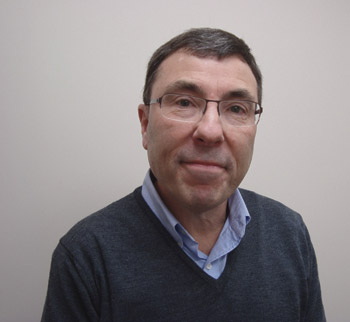Israel’s haredi community, perhaps best known for its devotion to Torah learning, appears to be developing an interest in biotechnology and optometry as well.
At least that’s the conclusion one might derive based on enrolment patterns of young haredim signing up for a course of studies at Jerusalem’s Hadassah Academic College.
The college, which was founded in 1970, last year announced a special course of study aimed at the city’s haredi community.
“When we opened the program for the ultra-Orthodox one year ago, we received 1,000 applications in six days,” said Shimon Arbel, the school’s director of institutional advancement. “We had budgeted for 50 students.”
In the end, thanks to supplementary government funding, the school was able to accept 260 haredi students, 60 per cent of them women. In the program’s second year, some 560 students were accepted and the college expects the number to grow to 700 in future years, Arbel added.
Arbel was in Toronto last week to raise the profile of the little-known college and pitch its merits to potential supporters.
“Toronto is known throughout the Jewish world as perhaps the strongest Zionist Diaspora community,” said Arbel, himself a native of Hamilton who made aliyah 40 year ago.
The college’s outreach program with local haredim is one aspect of its work and is part of a broader cultural change re-shaping the haredi community. “There is tremendous change in that community,” Arbel said. “Large parts of it want to enter the workforce, because they do not want to be poor.”
Special accommodations have been put in place for them – from ensuring teachers of the same gender to adding a preparatory year of study in Meah Shearim on top of the college’s four-year programs. Those who have devoted their lives to religious studies are offered a one-year remedial course in math, science, literature and languages. They make up in one year all the courses they missed in 12, Arbel stated.
So far, the program appears to be paying off. “They’ve proven to be excellent students,” and seem to be gravitating to biotechnology and optometry, Arbel said.
The college has implemented similar preparatory programs for Israeli Arab students, who make up 18 per cent of the student body. They hail mostly from the country’s north. The extra year is geared to improving their language skills.
An additional program, paid for by the city government, is aimed at young Palestinians from East Jerusalem.
Both the Israeli Arab students and the East Jerusalem Palestinians seem to favour the school’s in para-medical courses, Arbel said.
The college offers bachelor’s and master’s degrees in career-focused professions. Courses include those in health and life sciences, computer science, design and communications, government and social services.
Hadassah College was established by the Hadassah-WIZO movement but severed ties with the organization in 2008, when the woman’s group decided to focus its efforts on the Jerusalem hospital that bears its name.
The move proved advantageous for the college, which has become the fastest growing educational institution in Israel, expanding at a rate of 10 per cent per year, compared to 1.2 per cent growth for other Israeli universities, Arbel stated.
About 2,600 students attend courses at the college’s downtown Jerusalem campus. It prides itself on its low drop-out rate – five per cent – and the fact that 90 per cent of graduates find jobs within six months of leaving the school.
“Half the students are the first in their families to go to a college, so they come to us highly motivated to succeed,” he said.
There are lots of other pluses associated with the college, Arbel continued: it plays a strategic role in revitalizing the downtown core and is the only institution of higher learning in central Jerusalem; half the student body originates outside the city, and is representative of the diversity of the entire country; Jews, Arabs, men and women study together; the school is student-centred and is invested in each one’s success.
The government of Israel is the school’s main financial benefactor, providing 40 per cent of its budget. Ten per cent derives from tuition. The remainder comes from supporters both inside Israel and in the Diaspora. Hence Arbel’s visit to Toronto. The college is playing an important role in the development of Jerusalem and should be an institution looked on favourably by philanthropists within the Jewish world, he suggested.
